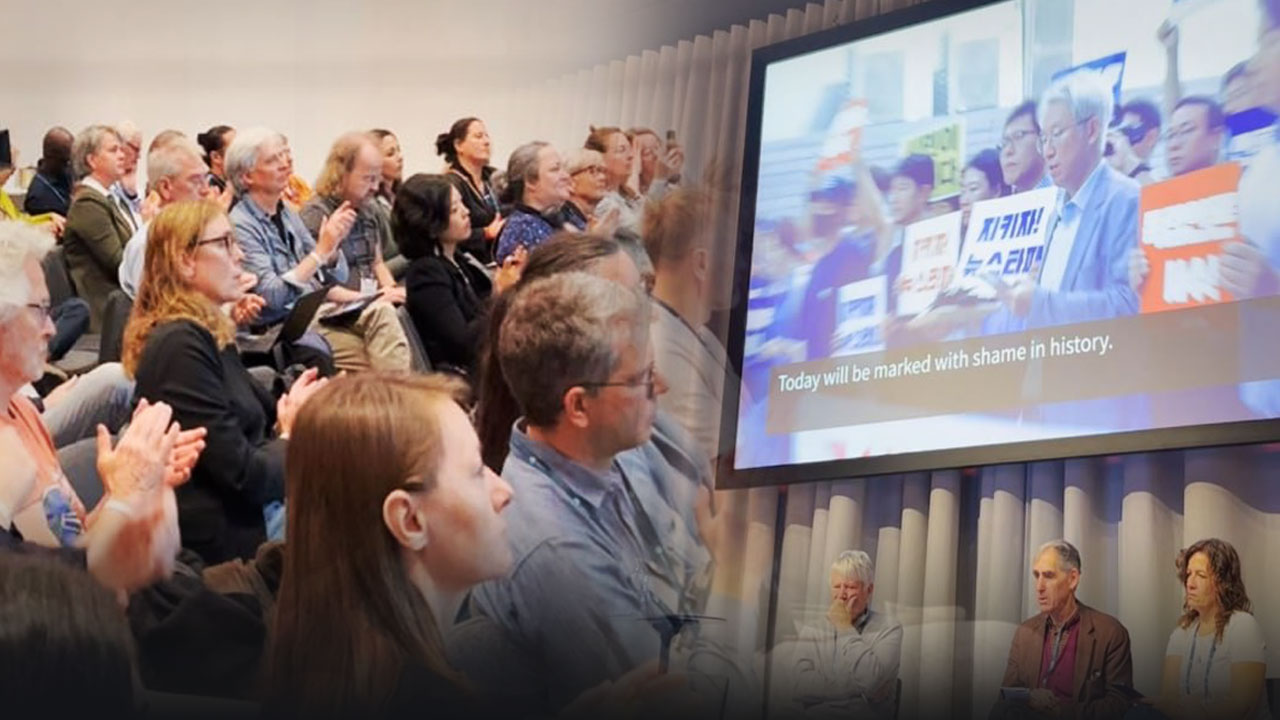
Global journalists "Stand with Newstapa"
2023년 09월 27일 14시 19분
As the date for President Trump’s summit with Kim Jong Un approaches, the US media seems to have lost interest in the happenings on the Korean Peninsula. Instead, the big question for national security watchers is how Trump’s unexpected decision to meet with the North Korean leader will be affected when John Bolton, the hawkish former UN ambassador, takes over as Trump’s national security adviser.
The Moon Jae-in government, which initiated the diplomacy that paved the way for the upcoming summits with Kim, has said it will be “working closely” with Bolton to resolve nuclear issues on the peninsula. That was expected, given’s President Moon’s cooperation with the Trump administration over the past year.
On the other hand, last week Korea’s Presidential Office, Cheong Wa Dae, dismissed a recent proposal from Bolton for the US to force a “Libya solution” on North Korea that would involve Kim immediately giving up his weapons in return for normalizing relations and an end to sanctions.

“I believe it is impossible to apply the Libyan process to North Korea” a senior Moon official told reporters in Seoul, reiterating Seoul’s position that verification and nuclear disarmament can only take place sequentially as part of a broader peace process in Korea. But American analysts who support such a process say that Bolton’s appointment could greatly harm the negotiating atmosphere created by President Moon over the past two months.
“I think Bolton is uniquely unsuited to take up any position that requires diplomacy and negotiation in this administration,” Suzanne DiMaggio, a negotiating expert with the New America Foundation, told Newstapa. DiMaggio, as I explained in a recent story, meets occasionally with North Korean diplomats as part of a “Track Two” process between the US and Pyongyang.
She said that Bolton – who as recently as February was calling for a pre-emptive attack on North Korea - could sabotage the talks by making impossible demands that North Korea would reject. In such a scenario, “the administration would move forward with talks, then handle them poorly and announce them as a failure,” DiMaggio said. “That could potentially open the way to a military action after diplomacy is deemed a failed proposition. That scenario really worries me.”
A similar view was expressed by Leon Sigal, a former State Department official and the author of Disarming Strangers, a book about the 1994 negotiations between President Bill Clinton and Kim Jong Il that led to a 12-year halt in North Korea’s nuclear program. Bolton was one of the architects of the “confrontation strategy” adopted towards North Korea by the Bush administration after that agreement and could easily disrupt US and South Korean plans for negotiations, he said.
“The real issue here is straightforward,” Sigal told Newstapa. “Are we prepared to negotiate, which means giving something to get something, or are we going to confront the North?” He was referring to 2002, when President Bush, with Bolton’s support, terminated the 1994 deal after US diplomats accused North Korea of “cheating” by developing a uranium program to build a bomb.
North Korea denied it had a program (which turned out to be true at the time) and offered to negotiate over the issue. But Bush said no, and went on to name North Korea to the “axis of evil,” triggering a second nuclear crisis. By 2006, Kim Jong Il managed to explode his first nuclear bomb.

If Bolton persuades Trump to adopt similar tactics now, the summit will fail, Sigal said. “If we confront the North, they resume testing, and guess what? They are not far away” from a nuclear capability, said Sigal. He estimated that it would take North Korea six to a dozen more tests of an ICBM “to get a front end re-entry vehicle that works.” It wouldn’t be long after that for the North to complete testing of a “thermo-nuclear device to make sure they’re reliable,” he said. That’s exactly what Moon and Trump want to avoid through their diplomacy.
But in the end, Sigal told Newstapa, the success of the summit will “depend on what the president wants.” Trump, he and other analysts point out, doesn’t always take the advice of his advisers. For example, his previous national security adviser, H.R. McMaster, championed the idea of a “bloody nose” military strike on the North, but that idea was rejected by the president.
In my opinion, Bolton may end up acting as a hardline “bad cop” towards North Korea during the talks, while Trump acts as the “good cop” and pushes for a settlement. At the same time, Trump’s relationship with Bolton is as unpredictable as it is with any of his advisers. Judging from his recent public statements and tweets, he appears to be committed to a successful outcome with Kim Jong Un.
If President Moon continues to act as peace broker between the US and North Korean leader and is successful in persuading the North that the United States no longer presents a military threat, the upcoming summits could be more successful than any of the pundits have predicted.
뉴스타파는 권력과 자본의 간섭을 받지 않고 진실만을 보도하기 위해, 광고나 협찬 없이 오직 후원회원들의 회비로만 제작됩니다. 월 1만원 후원으로 더 나은 세상을 만들어주세요.